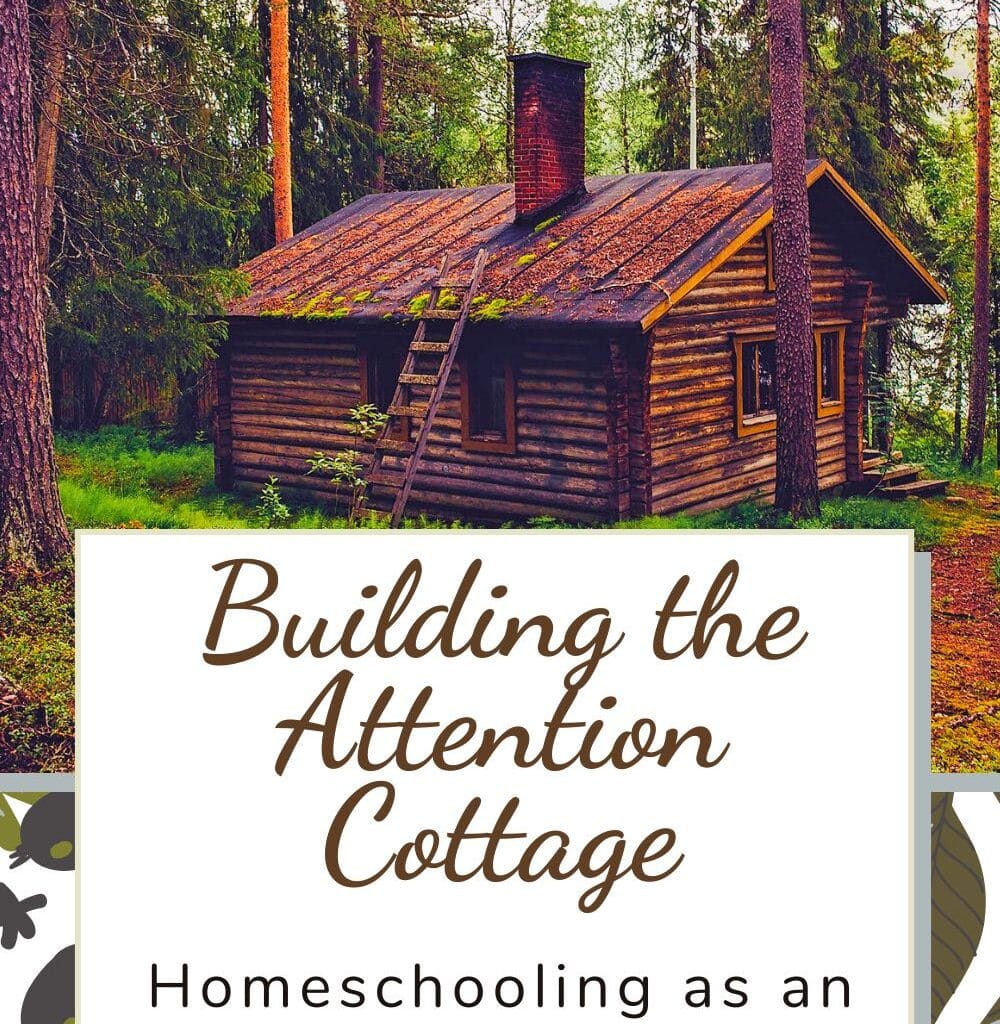Building an Attention Cottage
Rooting out weeds from a garden has two parts: pulling up the weeds that are growing on one hand and establishing the plants that you do want on the other. If we only ever pull at the weeds, we’ll be at it forever. Once that lettuce or those pumpkins or the dahlias get going, however, they start to shade the soil around it, take over the cultivated land, and give those weeds a run for their money.
This is a small illustration of something we have all experienced. We can attempt to root out bad habits in our lives, but bare soil will continue to invite new vices.
So while, as Alan Jacobs points out, that we all know that screens and social media are replete with negative consequences for our children, ourselves, our families, and our communities, it is imperative that we move beyond rumination. We have to establish and share a positive vision of individual, family, and community life so that we can turn our effort from analyzing a problem we already understand toward cultivating something in its place.
Alan Jacobs goes on to propose such a vision in a recent blog post. He calls it the “Attention Cottage”. For some (he uses E.B. White’s boat house as an example), this might be a real place. For others, it is a mental state achieved amid the chaos of everyday life. In either case, the purpose of the Attention Cottage is to create space to withdraw mentally, turn their attention to meaningful questions at play, so that they return to their decisions and duties calm, wise, and unperturbed:
To care only for things temporal is to lose the things eternal; but to attend rightly to things eternal is the royal road to constructive thought and action in the temporal realm. The great artists and thinkers cultivate a systolic/diastolic rhythm, tension and release, an increase and then decrease of pressure. In the latter phase they withdraw, by whatever means available to them, to their attentional cottage for refreshment and clarification — and then they can return to the pressures of the moment more effectively, and in ways non-destructive to them and to others.
Jacobs goes on to write:
Our attention cottage should be our home, our secure base, the place from which we set out on our adventures in contemporaneity and to which we always make our nostos.
In other words, to live well in the world we must avoid getting caught up in online frenzies. Our knee jerk reactions must move from composing retorts to retreating into our attention cottage in order to compose ourselves instead. We know that Charlotte Mason had twenty educational principles, but somehow we lose steam about the last ones.
The chief responsibility which rests on [children] as persons is the acceptance or rejection of ideas.
Charlotte Mason’s view of maturity is a person who does not allow their fallible reason to sweep them away into uninformed opinions based on what other people say or post, but someone who takes time to evaluate the ideas they meet and thoughtfully pass judgement on them.
Which brings us back to the Attention Cottage. On one hand, as persons, we need to establish our own attention cottage. We need a place to retreat from the chronic anxiety that pervades our culture and reorient ourselves toward maturity and growth. In the words of Edwin Friedman, we need to develop nerve.
Next, our children. We need to consider more deeply the whole of Charlotte Mason’s principles. We get caught up in the day-to-day activities of home educating: read this book, narrate it, move on to copy work, get your wellies on because it’s time for nature study. In doing so, we can easily lose sight of the fact that all of this is should be oriented toward maturity: to help our children develop both the attentional muscle and the “principles of conduct” required to form good opinions. To not get swept up and carried away by whatever faulty reasoning happens to be the fad of the day.
Alan Jacons wants us to make the attention cottage our home. But as a mother, my aim is to make the inverse of that sentence true as well. Our home should be an attention cottage, a secure base, the place from which we set out on our adventures in contemporaneity and to which we always make our nostos.
Herein exists our positive vision. We must build our attention cottages within the walls of our homes.

A letter from me to you, every week.
Like this post? Join the Around the Thicket newsletter for more ideas, encouragement, and inspiration for your Charlotte Mason journey. You’ll also receive my audio read-along of Charlotte Mason’s School Education. Not sure? Find out more.

